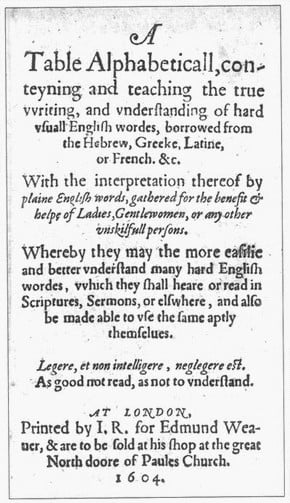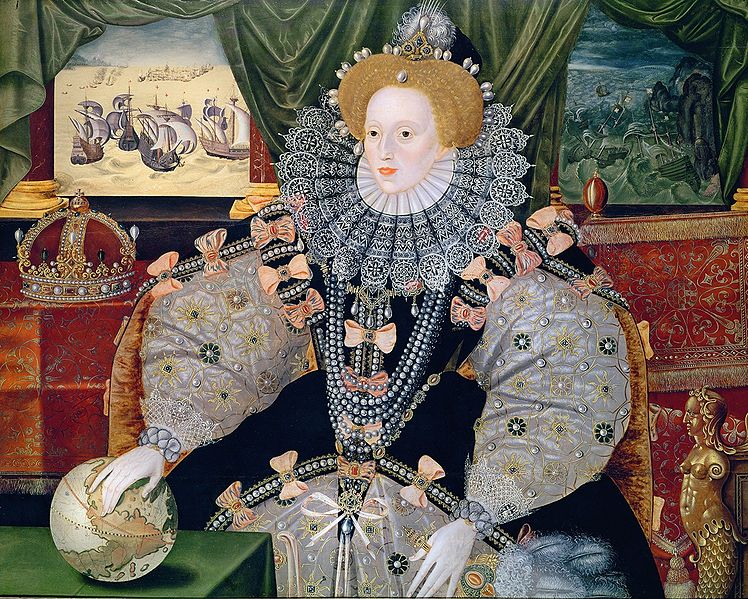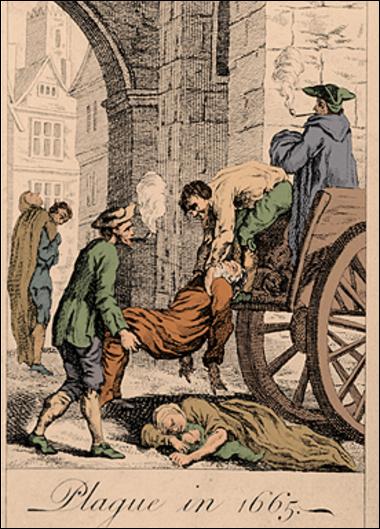 Early Modern English (c. 1500 – 1800)
Early Modern English (c. 1500 – 1800)
Many exciting things happened to the English language from around 1500 until 1800.
This period of time saw the effects of the Renaissance in art and literature with its strong influence on language growth.
Language changes also resulted from social changes brought about by The Great Plague. Although devastating in its death toll, this event saw many interesting changes for the English language.
An exciting phenomenon arrived during this period called The Great Vowel Shift, which changed the way we pronounce words. Its influence is still important in English today.
There was also a further increase in Latin and Greek words, which impacted on the vocabulary of the language.
The country and language also experienced the influence of one of the world’s greatest playwrights – William Shakespeare.
This time is when Early Modern English began, laying the stones for the Modern English we speak today.
The Great Vowel Shift
Between 1450 and 1750 there is a great event in the history of the English language which saw the change from Middle English to Early Modern English – the Great Vowel Shift.
The Great Vowel Shift saw a complete change in the way people pronounced English vowels. Vowels started to be pronounced more towards the front of the mouth.
In addition to the change in pronunciation of vowels in English, the end letter ‘e’ on many words became voiceless.
For example, the word ‘name’ changed from using a short ‘a’ sound and a voiced ending ‘e’, pronounced as ‘a’ in Middle English (the word ‘name’ pronounced as ‘namay’), to how we say it today with a long ‘a’ and a voiceless ‘e’ (‘name pronounced as ‘naym’).
The Great Vowel Shift saw a movement away from its old French-style pronunciation of vowels. The change in pronunciation can be seen even in the names of letters of the alphabet.
For example, the letter ‘a’ is pronounced with a long ‘a’ sound in modern English (‘ay’), while in French it is pronounced with the short ‘a’ sound (‘ah’), as it was in English before the Great Vowel Shift.
The Impact of the Great Plague
The Great Plague of 1665 – 1666 had a strong impact on the English language due to the cultural changes that resulted.
The pronunciation changes that took place during the Great Vowel Shift evolved in part due to the greater social mobility which happened after The Great Plague.
This was because the plague wiped out a large portion of the aristocracy as well as the lower classes. In just seven months, one fifth of the population of London was dead.
This merging of lower class English and higher class Anglo-Norman combined to create a new Early Modern English.
Although difficult, this English is intelligible to English speakers today. A good example of Early Modern English is the language used in Shakespeare’s works.
Early Modern English
Early Modern English is said to span roughly the years from 1500 until 1800. This period is termed the Renaissance.
The language of this Elizabethan age is much more closely related to our modern English today than, say, the language of Chaucer in The Canterbury Tales.
Although Elizabethan English would be strange to the modern ear, we would understand it.
In contrast, Chaucer’s language would be pronounced so differently (as this was before the Great Vowel Shift) that it would be almost unintelligible to a present day listener.
A strong influence on the English language during Renaissance times was the revival of classical scholarship, which saw an increase in the numbers of Greek and Latin words incorporated into English.
This influx of new words again increased the richness of English vocabulary still further with many new words introduced into the language.
The First English Dictionaries
The Early Modern period also saw the creation of the first English dictionary, published by Robert Cawdrey in 1604. This helped the push towards the standardisation of the English language.
Cawdreys’ dictionary was followed in 1755 by the more useful and comprehensive dictionary of Samuel Johnson. Explore more about these dictionaries and their impact on our History of the English Dictionary page.

3. Title page of A Table Alphabeticall by Robert Cawdrey – image source
Shakespeare and the English Language
During Elizabethan times, Shakespeare was highly influential in society due to his position as the official Royal Playwright.
His hugely popular plays and sonnets used the English language in new and creative ways and he invented many new words and phrases never heard before.
We still use many of Shakespeare’s words and phrases today,often without realising it, and many of his witty lines have become classic English proverbs.
For example, these words, phrases, idioms and proverbs all come from Shakespeare’s writing:
‘Scuffle’ (Anthony and Cleopatra)
‘Star-crossed’ (Romeo and Juliet)
‘Belongings’ (Measure for Measure)
‘Articulate’ (Coriolanus)
‘With bated breath’ (The Merchant of Venice)
‘Leap-frog’ (Henry V)
‘Fashionable (Troilus and Cressida)
‘A sorry sight’ (Macbeth)

William Shakespeare – image source
‘All that glitters is not gold’ (The Merchant of Venice)
‘To vanish into thin air’ (The Tempest and Othello)
‘At one fell swoop’ (Macbeth)
‘Addiction’ (Othello)
‘Swagger’ (Henry V)
‘Neither a borrower nor a lender be‘ (Hamlet)
‘Brevity is the soul of wit’ (Hamlet)
‘Foul play’ (Love’s Labours Lost and other plays)
‘Wild goose chase’ (Romeo and Juliet)
‘In a pickle’ (The Tempest)
‘Fair play’ (The Tempest and other plays)
‘Salad Days’ (Anthony and Cleopatra)
‘Cold blooded’ (King John)
‘Set your teeth on edge‘ (Henry IV Part I)
‘New-fangled’ (Love’s Labours Lost)
‘Truth will out’ (The Merchant of Venice)
‘The game is up’ (Cymbeline)
‘Short shrift’ (Richard III)
Learn more about English idioms and slang, phrasal verbs, proverbs and other interesting phrases.
Now explore one of the most important developments for the English language during the Early Modern period – the first English dictionary. This exciting invention helped to standardise English and propel it into the Late Modern age.
Do you enjoy reading Shakespeare’s plays and poems? Do you know any other words or phrases invented by Shakespeare?
What are your thoughts on Early Modern English – do you find it too difficult to read? Let us know in the comments.
Next: The First English Dictionary
Attributions
- Portrait of Elizabeth I of England, the Armada Portrait, circa 1588. By an anonymous painter, formerly attributed to George Gower. The portrait was made to commemorate the defeat of the Spanish Armada (depicted in the background). Elizabeth I’s international power is reflected by the hand resting on the globe. [Public domain], via Wikimedia Commons
- The Great Plague of London in 1665. The last major outbreak of the bubonic plague in England. Anonymous artist. [Public domain], via Wikimedia Commons
- Title page of A Table Alphabeticall by Robert Cawdrey, 1613. By Robert Cawdrey [Public domain], via Wikimedia Commons


